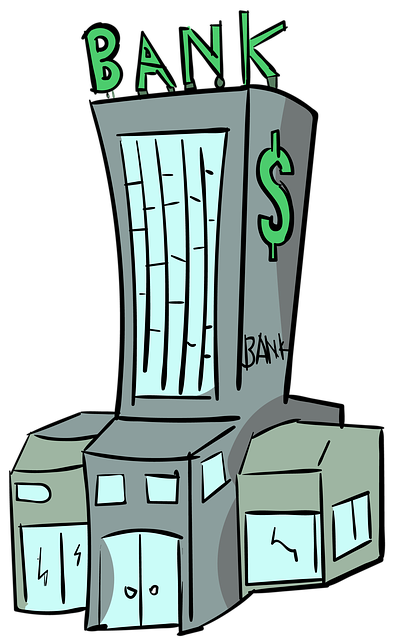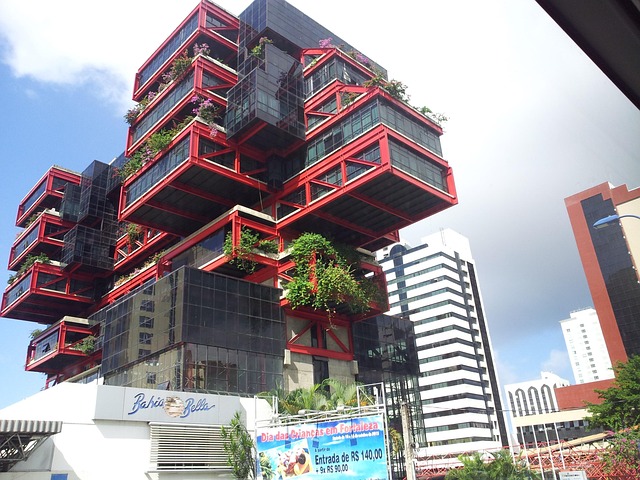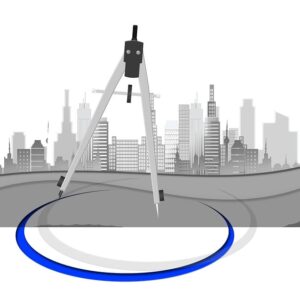Industrial-grade unit heaters excel in harsh conditions, offering robust heating solutions for warehouses, factories, and commercial spaces. Types include suspended heaters, gas-fired units (forced air), and electric models with varying BTU capacities. Ceiling-mounted designs enhance productivity, worker safety, and operational effectiveness by minimizing floor space obstruction. Regular maintenance, including cleaning, inspection, and component replacement, extends their lifespan in challenging environments like warehouses or commercial heating applications.
In harsh industrial environments, reliable heating solutions are non-negotiable. Industrial-grade unit heaters, designed for extreme conditions, play a pivotal role in maintaining operations across diverse sectors. This article delves into the crucial features and benefits of these robust heaters, exploring their key design adaptations to navigate challenging settings. From understanding their vital functions to examining maintenance strategies, we uncover why industrial-grade unit heaters are indispensable game-changers, offering superior performance even in the toughest operating conditions.
- Understanding Industrial-Grade Unit Heaters: Their Role and Benefits
- Key Features and Design Considerations for Harsh Environments
- Applications: Industries and Settings That Require Robust Heating Solutions
- Maintenance and Longevity: Ensuring Optimal Performance in Challenging Conditions
Understanding Industrial-Grade Unit Heaters: Their Role and Benefits

Industrial-grade unit heaters are designed to withstand and perform optimally in some of the harshest operating conditions within industrial spaces, warehouses, and commercial settings. These robust heating systems, often including suspended heaters, gas fired units, or electric heaters, offer a range of benefits that enhance productivity and comfort. They are equipped to handle high BTU capacity requirements, ensuring efficient forced air heating for large industrial areas.
Ceiling-mounted unit heaters provide a versatile solution for commercial heating needs. Their design allows them to effectively distribute heat throughout expansive industrial spaces while taking up minimal floor space. This is particularly advantageous in settings where floor accessibility is crucial, such as factories and manufacturing facilities. By employing these advanced heating systems, businesses can maintain optimal temperatures, improve worker safety, and increase overall productivity.
Key Features and Design Considerations for Harsh Environments

In designing unit heaters for harsh operating conditions—be it extreme temperatures, corrosive environments, or demanding industrial spaces like warehouses—key features and design considerations are paramount. These include robust construction to withstand constant wear and tear, often featuring materials that can handle low and high-temperature extremes. For instance, ceiling-mounted gas fired units with forced air heating mechanisms offer both efficiency and reliability in commercial heating applications, ensuring consistent comfort even in the harshest industrial settings.
Additional design aspects focus on safety features such as automatic shutdown mechanisms for extreme conditions and advanced temperature controls to prevent overheating. Suspended heaters, with their versatility, are particularly suited for large industrial spaces where they can be strategically placed to maximize BTU capacity and ensure uniform heating. Electric heaters too play a significant role in these environments, offering quieter operations and precise temperature control, making them ideal for indoor and controlled commercial heating scenarios.
Applications: Industries and Settings That Require Robust Heating Solutions

Unit heaters play a pivotal role in various industries and settings that demand robust heating solutions. From warehouse applications to commercial heating in industrial spaces, these versatile heating systems are designed to withstand harsh conditions. In environments where traditional heating methods falter, such as low temperatures, high dust levels, or corrosive atmospheres, unit heaters emerge as a reliable alternative.
Suspended heaters, gas fired units, and electric heaters are among the options that cater to specific needs. For instance, forced air heating is ideal for large industrial spaces, offering efficient temperature control. Electric heaters, with their quick response times, are suitable for smaller areas or situations requiring precise temperature management. The BTU capacity of these unit heaters ensures they can meet the demands of diverse applications, making them indispensable in maintaining comfortable and safe environments within commercial and industrial settings.
Maintenance and Longevity: Ensuring Optimal Performance in Challenging Conditions

Proper maintenance is key to extending the lifespan of industrial-grade unit heaters designed for challenging operating conditions. These heaters often face harsh environments, including extreme temperatures, corrosive substances, and constant operation, which can lead to wear and tear over time. Regular cleaning, inspection, and replacement of worn components are essential practices. By adhering to a consistent maintenance schedule, users can ensure optimal performance and longevity of their unit heaters, even in demanding industrial spaces like warehouses or commercial heating applications.
For gas fired units or electric heaters, regular servicing includes checking for leaks, inspecting burner nozzles, and replacing filters. In ceiling-mounted configurations, dust accumulation should be addressed promptly to maintain efficient forced air heating. Additionally, understanding the BTU capacity of your unit is crucial in determining its suitability for specific industrial spaces, ensuring effective temperature regulation.
Industrial-grade unit heaters, with their robust design and advanced features, offer unparalleled performance in harsh operating conditions. By understanding their key attributes, strategic placement in demanding industries, and meticulous maintenance routines, businesses can harness the full potential of these versatile heating solutions. Incorporating industrial-grade unit heaters into operations ensures longevity, reliability, and efficient temperature control, even in the most challenging environments.
